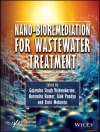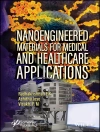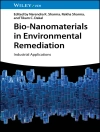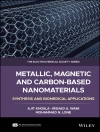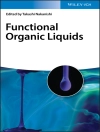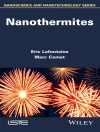Wastewater pollution is a major issue in the context of the future circular economy because all matter should be ultimately reused, calling for efficient depollution techniques. This book present timely reviews on the treatment of wastewater contaminated by organic pollutants, with focus on aerobic granulation and degradation. Organic pollutants include microplastics, phthalates, humic acids, polycyclic aromatic hydrocarbons, pharmaceutical drugs and metabolites, plastics, oil spills, petroleum hydrocarbons, personal care products, tannery waste, dyes and pigments.
Tabella dei contenuti
Chapter 01 Microplastic Pollution in Water.- Chapter 02 Identification and remediation of plastics as water contaminant.- Chapter 03 Remediation of water pollution by plastics.- Chapter 04 Plastics and e waste, a threat to water systems.- Chapter 05 Degradation of polycyclic aromatic hydrocarbons by functionalized nanomaterials.- Chapter 06 Aerobic granulation in hydrocarbon-rich wastewater treatment.- Chapter 07 Biodegradation of hydrocarbons marine environment.- Chapter 08 Treatment of Petroleum Hydrocarbon Pollutants in Water.- Chapter 09 Fate of pharmaceutical drugs and metabolites in the environment.- Chapter 10 Pharmaceutical and personal care products in the aquatic environment and wastewater treatment by advanced oxidation processes.- Chapter 11 Oily wastewater treatment.- Chapter 12 Remediation of pollution by oil spills.- Chapter 13 Remediation of Organic Pollutants in Water.- Chapter 14 Soil as heterogeneous Fenton catalyst for the abatement of organic pollutants.- Chapter 15 Analytical methods for phthalates in water samples.- Chapter 16 Environmental impact and treatment of tannery waste.- Chapter 17 Methods for the treatment of wastewaters containing dyes and pigments.- Chapter 18 Nanomaterials for textile waste treatment.
Circa l’autore
Dr. Inamuddin, is an assistant professor in the Chemistry Department, King Abdulaziz University, Jeddah, Saudi Arabia and is also an assistant professor in the Department of Applied Chemistry, Aligarh Muslim University, Aligarh, India. He has extensive research experience in multidisciplinary fields of analytical chemistry, materials chemistry, electrochemistry, renewable energy and environmental science. He has published about 162 research articles in various international scientific journals, 18 book chapters, and 96 edited books with multiple well-known publishers. His current research interests include ion exchange materials, a sensor for heavy metal ions, biofuel cells, supercapacitors and bending actuators.
Dr. Mohd Imran Ahamed received his Ph.D degree on the topic ‘Synthesis and characterization of inorganic-organic composite heavy metals selective cation-exchangers and their analytical applications’, from Aligarh Muslim University, Aligarh, India in 2019. He has published several research and review articles in the journals of international recognition. He has also edited various books which are published by Springer, CRC Press Taylor & Francis Asia Pacific and Materials Science Forum LLC, U.S.A. He has completed his B.Sc. (Hons) Chemistry from Aligarh Muslim University, Aligarh, India, and M.Sc. (Organic Chemistry) from Dr. Bhimrao Ambedkar University, Agra, India. His research work includes ion-exchange chromatography, wastewater treatment, and analysis, bending actuator and electrospinning.
Dr. Eric Lichtfouse is a biogeochemist at Aix Marseille University who has invented carbon-13 dating, a molecular-level method allowing to study the dynamics of organic compounds in temporal pools of complex environmental media. He is Chief Editor of the journal Environmental Chemistry Letters, and the book series Sustainable Agriculture Reviews and Environmental Chemistry for a Sustainable World. He is the author of the book Scientific Writing for Impact Factor Journals, which includes an innovative writing tool: the Micro-Article.


